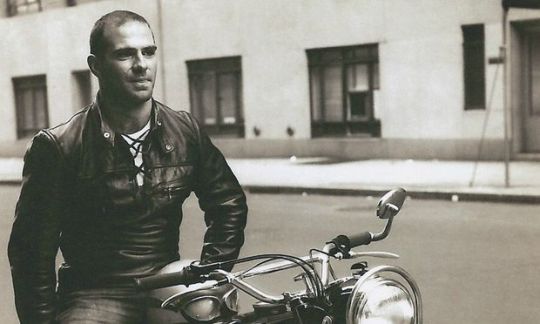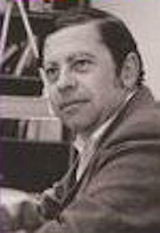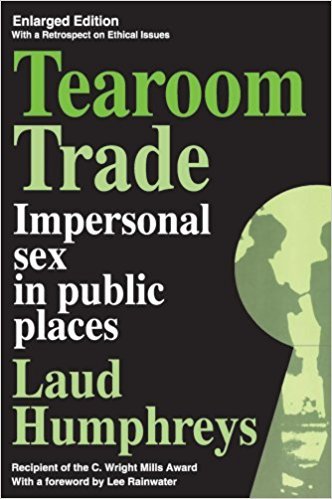-
 joachim
2So i've found myself in a loop hole of questions , i've been trying to find out what is the purpose of life, but there are thousands of "purposes" some say happiness, some say love. But that brings up the question, why do we need happiness and love. happiness and love is a feeling created in our brain by certain chemicals and is a part of our anatomy. What is the purpose of any life existence, however i presume there is no answer for this question we just are, as everything is....
joachim
2So i've found myself in a loop hole of questions , i've been trying to find out what is the purpose of life, but there are thousands of "purposes" some say happiness, some say love. But that brings up the question, why do we need happiness and love. happiness and love is a feeling created in our brain by certain chemicals and is a part of our anatomy. What is the purpose of any life existence, however i presume there is no answer for this question we just are, as everything is....
-
 unenlightened
10kOne can usefully say that the purpose of X is Y, and perhaps that the purpose of Y is Z. But if one is not to go on forever, or round in a circle, then one has to reach a terminus. One might say that life is good in, of, and for, itself, and is not for some external purpose. Or one might say that everything is without ultimate purpose. Or one might find the terminus not in life but in 'God's will', or some such.
unenlightened
10kOne can usefully say that the purpose of X is Y, and perhaps that the purpose of Y is Z. But if one is not to go on forever, or round in a circle, then one has to reach a terminus. One might say that life is good in, of, and for, itself, and is not for some external purpose. Or one might say that everything is without ultimate purpose. Or one might find the terminus not in life but in 'God's will', or some such.
Anyway, 'nothing' is not the only possibility. -
 BCAccepted Answer
14.2kAh, that eternal question: WHAT is the meaning of life?
BCAccepted Answer
14.2kAh, that eternal question: WHAT is the meaning of life?
It appears that it is up to us to decide, since no oracle has spoken, no golden tablets have been located, no sky writing has been noticed that spells it out for us.
This open-endedness is both a very good thing and a very bad thing. It's a very bad thing if you want the meaning of life spelled out for you. It's a very good thing if you feel like drafting your own 'meaning of life' statement.
So, what sort of person are you--Joachim--ready-made or blank page? -
Cavacava
2.4kSo i've found myself in a loop hole of questions , i've been trying to find out what is the purpose of life, but there are thousands of "purposes" some say happiness, some say love
Interesting way of putting it.
By "loop hole of questions" do you mean that your thoughts keeping going around in circles and you get nowhere or do you mean that by asking these questions you escape having to make a decision? -
 BC
14.2kUnless you have been living under a rock, you have encountered the several basic ideas. There are not 'thousands'. Some of the contenders...
BC
14.2kUnless you have been living under a rock, you have encountered the several basic ideas. There are not 'thousands'. Some of the contenders...
a) become King of the Hill by making tons of money; consolidating all of the local crime families under your control; owning the biggest house in town; cornering the market in soybeans; becoming Governor, Senator, or President; win first place on the FBI's Most Wanted List--or, if you are really ambitious, all of the above. Die rich.
b) become a learnéd person; write the definitive history of North Dakota; become a self-supporting poet, artist, composer, author, actor, sculptor; become the archetypal porn star. Die with uncompleted projects.
c) find a job, do good work, get married, stay married, have children, grandchildren, retire, mow the lawn weekly, die. Dead.
d) Love and serve YHWH, Jesus, Brahma, Buddha, Ahura Mazda, Odin, or Aphrodite all the days of your life, die and then go to your eternal reward, somewhere, eventually. Or not.
e. Discover tabletop fusion, or some other world-changing phenomena. Win the nobel prize, or die first.
f. Dither and fret over what the meaning of life is until it is over and you're dead.
If you don't happen to like any of these, or some variation thereof, then you will have to come up with your own plan.
Aren't there any famous people you would like to resemble? Jesus? Mao Zedong? Mother Theresa? Lady Gaga? Donald Trump?
Any books or movies that impressed you with their message? Mein Kampf? Ten Nights in a Bar Room and What I saw There? Naked Came the Stranger? The Collected Works of Emily Dickinson? Looney Tunes? -
 Noble Dust
8.1khappiness and love is a feeling created in our brain by certain chemicals and is a part of our anatomy. — joachim
Noble Dust
8.1khappiness and love is a feeling created in our brain by certain chemicals and is a part of our anatomy. — joachim
Looking at the chemical makeup of the brain that leads to certain feelings like love isn't a way of understanding why, it's just the how. Understanding the inner workings of a computer doesn't tell us the purpose of the computer. When asked "why use a computer to post on a philosophy forum?" I don't answer "Because when I type the keys, the processor and the RAM and all of the components put words on the screen."
So, what's a different sort of thing to examine about love, for instance, that might more appropriately answer the why? Since why is the question you're asking, after all. -
 Wayfarer
26.2kBut that brings up the question, why do we need happiness and love. happiness and love is a feeling created in our brain by certain chemicals and is a part of our anatomy. — joachim
Wayfarer
26.2kBut that brings up the question, why do we need happiness and love. happiness and love is a feeling created in our brain by certain chemicals and is a part of our anatomy. — joachim
My question is, why do you believe that? Do you think that is a process of cultural conditioning, whereby the materialist assumptions of the modern world have conditioned your way of framing the question?
Anyway, in answer to your question, I think life everywhere is animated by purpose. It's only the rich inhabitants of so-called 'developed societies' who ever sit around and wonder what 'purpose' is. All other creatures, and most other people, are simply doing whatever they have to do. The fact that this has become such a widespread question is, again, a consequence of cultural ennui. Nietszche foretold the nihilism that would arise after the death of God (although in my view his proposed remedy had no merit.)
I think we need to get closer to the earth. The Universe doesn't exist to serve our wants, but we ourselves have been brought forth by it, and I really do think there's a reason for that (although it is one that might appear differently for every individual, it's not like a reason in the sense of being scripted). But the task is, to discover it, or create it, for ourselves. -
 BC
14.2khappiness and love is a feeling created in our brain by certain chemicals — joachim
BC
14.2khappiness and love is a feeling created in our brain by certain chemicals — joachim
No, events which make us happy and the appearance of the objects of our love come first. The chemicals follow to assist us in feeling happiness and love. Conversely, seeing a giant spider lurking on your keyboard might strike terror into your 'heart', but not until the appropriate chemicals are emitted, will you "feel" the horror and leap out of your skin. It doesn't take long at all for that to happen, which is why people get confused about what comes first -- the chemical and love, or the chemical and horror.
life everywhere is animated by purpose. It's only the rich inhabitants of so-called 'developed societies' who ever sit around and wonder what 'purpose' is. — Wayfarer
Right. Living things have to get on with life -- generally we don't have a lot of choice. It's get with the program or shrivel up and die. Creatures don't need to feel this purpose, they just need to do. And generally, that's what we do.
I'm not so sure, though, that it's just us spoiled brats living in London, New York, Tokyo, and Sydney that sit around and wonder, "Just what is the purpose of this fine-leather upholstered, well-fed, perfectly air-conditioned, high-count organic cotton sheeted, thick carpeted, beautifully dressed and groomed ocean-view existence for?"
I'm not so sure it's wealth that is the problem. It isn't just excessive leisure, either--it doesn't take long to wonder "WTF is life for?"
I think its much more the case that these highly industrialized, complex, and rich cultures find their purpose-defining-compasses no longer registering true north, or true-anything else. They are drifting without a sense of purpose. It's the death of god, death of reason, death of hope in the future, death of a lot of things that used to help people get their bearings. (I say "they are drifting"; maybe I'm really, really deluded, but I don't feel like I am adrift without a compass. But then, I'm not 19 years old.)
We don't necessarily want to take on the limited horizons of the callous-handed sons of the soil, either. It's one thing to be closer to the 'earth'; it's something else to be up to your eyeballs in dirt and back-breaking work that is never done. -
 Wayfarer
26.2kI think its much more the case that these highly industrialized, complex, and rich cultures find their purpose-defining-compasses no longer registering true north, or true-anything else. They are drifting without a sense of purpose. — Bitter Crank
Wayfarer
26.2kI think its much more the case that these highly industrialized, complex, and rich cultures find their purpose-defining-compasses no longer registering true north, or true-anything else. They are drifting without a sense of purpose. — Bitter Crank
Do you know Eric Fromm's book 'Fear of Freedom'? (Also published as Escape from Freedom.) He says that the kind of individual freedom that modern life offers is a challenge or even a burden. Back in the day, you just did as you were told - you were part of a clan, group, family and you had your appointed role. No need to think about it. Whereas now we are completely free to make of ourselves as we wish, and it's a scary task. So we seek to avoid making the choice, by various means such as conformity, immersion in various causes, or authoritarianism (it was written not long after WWII but the shadows of authoritarianism are looming again, I think). Come to think of it, that is not unrelated to the book I mentioned a few days back, The Heretical Imperative, about the requirement to decide one's own spiritual path. I suppose that's another aspect of the same thing. The consequences of individualism. -
 unenlightened
10kthat is not unrelated to the book I mentioned a few days back, The Heretical Imperative, about the requirement to decide one's own spiritual path. — Wayfarer
unenlightened
10kthat is not unrelated to the book I mentioned a few days back, The Heretical Imperative, about the requirement to decide one's own spiritual path. — Wayfarer
It's not unrelated to this, too:
I'll tell you a secret.
Something they don't teach you in your temple.
The Gods envy us.
They envy us because we're mortal, because any moment might be our last. Everything is more beautiful because we're doomed.
You will never be lovelier than you are now.
We will never be here again. — Homer -
 schopenhauer1
11kSo i've found myself in a loop hole of questions , i've been trying to find out what is the purpose of life, but there are thousands of "purposes" some say happiness, some say love. But that brings up the question, why do we need happiness and love. happiness and love is a feeling created in our brain by certain chemicals and is a part of our anatomy. What is the purpose of any life existence, however i presume there is no answer for this question we just are, as everything is.... — joachim
schopenhauer1
11kSo i've found myself in a loop hole of questions , i've been trying to find out what is the purpose of life, but there are thousands of "purposes" some say happiness, some say love. But that brings up the question, why do we need happiness and love. happiness and love is a feeling created in our brain by certain chemicals and is a part of our anatomy. What is the purpose of any life existence, however i presume there is no answer for this question we just are, as everything is.... — joachim
I call the term instrumentality- the idea that we do stuff to do stuff to do stuff. Essentially big brains with complex minds has given us the self-awareness to know that we are surviving on one hand and finding ways to entertain ourselves/ keep from being bored on the other hand. Survival entails a plethora of inter-related activities depending on the complexity and stratification of society- but we are certainly knee-deep embedded in it. The focus for most except the top is the details of any given job we get compensation for and all the entrappings of this, consumption, investments, monetary, taxes, compliance with government regulations, etc.. The remainder is focus on entertainment.. reading, writing, books, debate, hanging out with friends, relationships..
The common theme here is focus.. We have to focus on this or that to keep our minds occupied. When the mind is not occupied, life itself may appear naked an bare.. that is to say the instrumental nature that it is.. The doing just to do just to do.. This usually makes people flee back into their focus on entertainments.. Sometimes people get good enough at the focus to have "flow" which is a state of complete involvement in an activity where time seems to fly. Most states of focus are mediocre and a bit of a slog I would say. What do you do about the instrumental nature of existence? There is nothing to do about it. You exist and you find ways to focus on this or that survival or entertainment related activity.. then your mind comes back to the instrumental nature of reality, and then usually has to refocus on the survival and entertainment again.
Antinatalists might say you can reify your rebellion of existence by symbolically not supporting the instrumental nature of things by discontinuing the next generation. You can also live with the awareness that you know that things are simply instrumental and that we are simply focusing on survival and entertainment as that is what existence demands from us. -
 BC
14.2kI haven't read Fromm's Escape From Freedom for a long time. It was good, and a book I should revisit (time, time, time). That and The Sane Society. Those post-WWII psychologists and sociologists wrote some good stuff: The Lonely Crowd, The Power Elite, (David Riesman); Who Rules America (G. William Domhoff).
BC
14.2kI haven't read Fromm's Escape From Freedom for a long time. It was good, and a book I should revisit (time, time, time). That and The Sane Society. Those post-WWII psychologists and sociologists wrote some good stuff: The Lonely Crowd, The Power Elite, (David Riesman); Who Rules America (G. William Domhoff).
I am very glad, really, that I don't live in a "you just did as you were told - you were part of a clan, group, family and you had your appointed role" society. That would have been too much like the days of one's early youth, before one left home (at last!) and finally able to decide about roles. Not that I did a great job of it. Finding the right role took a long time (decades). So I had to spend a lot of that freedom trying to figure out what it meant to be free.
And so do we all. -
 BC
14.2kHere are pictures of three of my intellectual heroes - David Riesman, Oliver Sacks, and Laud Humphreys
BC
14.2kHere are pictures of three of my intellectual heroes - David Riesman, Oliver Sacks, and Laud Humphreys


In an entirely different context, Laud Humphreys is also one of my intellectual heroes--Episcopal priest and scandalizer of the Sociology Profession.
This isn't Laud Humphreys, but it is what I think he should have looked like in his youth, and what he did look like a bit later in life. And then a picture of his profession-rattling book (which came out of his PhD dissertation):



-
 Hanover
15.3kAnd then a picture of his profession-rattling book (which came out of his PhD dissertation): — Bitter Crank
Hanover
15.3kAnd then a picture of his profession-rattling book (which came out of his PhD dissertation): — Bitter Crank
I read up on this cite on Wiki (https://en.wikipedia.org/wiki/Tearoom_Trade), and it seems it rattled the profession not because of the focus of the study (homosexuality in restrooms), but because of the unethical way the research was conducted (concealment and misrepresentation of the author's true identity to interviewees, revealing interviewees' identity, and failure to secure consent from interviewees to participate in the study).
Maybe this book offered comfort to those who participated in such conduct by explaining the necessity and normalcy of having sex in bathrooms during the 1970s, an era still generally oppressive to homosexuality, but, with the other controversy miring the book, it'd be hard to laud Laud a hero. -
 BC
14.2kThat's right -- the scandal was about consent and subterfuge. No doubt about it, Humphreys' methods were extremely invasive.
BC
14.2kThat's right -- the scandal was about consent and subterfuge. No doubt about it, Humphreys' methods were extremely invasive.
Subject identities were not revealed, and could not have been accidentally revealed because Humphreys destroyed the records of who the subjects were before the study was completed. I do not know what rules with respect to informed consent prevailed in academic work in 1968-1970. I don't think Institution Review Boards (IRB) had come into the picture yet. (It was at least partly because of Humphreys' work that they did come into existence.)
On the other hand, I can't imagine the research being done if informed consent had been required. The purpose of the study was not to comfort anyone, but to characterize the population that engaged in anonymous public sex with males in St. Louis, MO park toilets. It turned out that many of the men were married with children.
I found that some of the men in Minneapolis adult books stores soliciting sex in the late 1980s were also married men. (I was doing HIV prevention work at the time, and was clear about why I was in the adult book store. I didn't seek anyone's identity.)
A University of Minnesota research project about behavior in barroom environments used wired participant observers. Informed consent was not requested of subjects, and they were not asked to participate; identities were also not sought. (They were measuring what factors influenced the amount of alcohol consumption.) This study had to get IRB approval.
I do admire the methodology that Humphreys used. Participant observation is a very useful research technique. I liked the chutzpah that it took to pull this off. I also think it was very worthwhile research. It helped reveal what Freud called the "polymorphous perversity" of sexuality. -
 BC
14.2kJust to clarify... It wasn't the observations of what went on in the toilets that was problematic. It was observing license plates, and then obtaining the name and address associated with the license plate, followed by a visit to the home of the license plate owner to do a survey on kitchen appliance purchase plans (or something like that). It was from the fake surveys that the demographic information about the public sex participants was obtained.
BC
14.2kJust to clarify... It wasn't the observations of what went on in the toilets that was problematic. It was observing license plates, and then obtaining the name and address associated with the license plate, followed by a visit to the home of the license plate owner to do a survey on kitchen appliance purchase plans (or something like that). It was from the fake surveys that the demographic information about the public sex participants was obtained. -
 dclements
503So i've found myself in a loop hole of questions , i've been trying to find out what is the purpose of life, but there are thousands of "purposes" some say happiness, some say love. But that brings up the question, why do we need happiness and love. happiness and love is a feeling created in our brain by certain chemicals and is a part of our anatomy. What is the purpose of any life existence, however i presume there is no answer for this question we just are, as everything is....
dclements
503So i've found myself in a loop hole of questions , i've been trying to find out what is the purpose of life, but there are thousands of "purposes" some say happiness, some say love. But that brings up the question, why do we need happiness and love. happiness and love is a feeling created in our brain by certain chemicals and is a part of our anatomy. What is the purpose of any life existence, however i presume there is no answer for this question we just are, as everything is....
—joachim
The answer to your question (as well as every human being who asks it) is simple our end purpose or goal is to become God. The problem is it is far beyond our capacity (or at least that I know of) to either become God or often even God-like. I know for people that are theists it is could be considered heresy to even claim one can become like God, but knowing God and becoming like God are in some ways not entirely different. If one is agnostic they might just split the difference are choose to understand what God may be, but yet behave in a way where they do what they must regardless whether there is or isn't a God.
My suggestion is if trying to become like God (regardless whether you are or are not a theist) isn't your cup of tea at the moment, I suggest reading up on Søren Kierkegaard's 'knights of faith' as it might help you realize what it is you need to do. While many consider a 'knight of faith' purely in theist terms,
Kierkegaard's knights could be devoted to any cause; including those that are diametrically opposed to theism itself. Some examples of possible knights of faith include Alexander the Great, Diogenes, Jesus, Abraham from the bible, Joan of Arc, Don Quixote (although he is a fictional character), Leonardo da Vinci, Kierkegaard, Mark Twain, Nietzsche, and Rasputin. Although this is a long list I should note that it is only POSSIBLE for some of these to be an actual knight of faith, Kierkegaard wasn't even certain that anyone could do enough to be an actual knight of faith although putting ALL of one's time/energy and hope on something and being an actual knight of faith may not be that far apart.
I guess that one thing is certain about one becoming a knight of faith it requires one put a cause above one's own welfare and possibly even one's sanity and it is almost a given that the trials one goes through are far from trivial. Also it isn't known whether or not the success one has while trying to be a knight of faith (success in the real world that is) is what makes them, since success can obviously come from doing little my guess is it is the trials themselves that eventually make or break on; although actual success my help one's efforts be remembered and/or further one's cause.. -
 Jindophilosnerd
1When we talk about purpose, we often relate to the question " what is the meaning of life?" I think that every belief is equally untrue. Everyone will have their own definition about their own purpose. Instead, ask yourself, "What life mean to you?" That will be the purpose, there is no X or Y. Every answer will be different.
Jindophilosnerd
1When we talk about purpose, we often relate to the question " what is the meaning of life?" I think that every belief is equally untrue. Everyone will have their own definition about their own purpose. Instead, ask yourself, "What life mean to you?" That will be the purpose, there is no X or Y. Every answer will be different. -
 Michael Ossipoff
1.7k
Michael Ossipoff
1.7k
There needn't be a "purpose".
Maybe there are things that you like or would like.
Obviously you should act ethically, or at least avoid acting unethically. Maybe there are valid commitments to others. All of that goes without saying.
Other than the above, what purpose is needed or expected?
Michael Ossipoff -
 prothero
514Life has whatever purpose you decide to give it.
prothero
514Life has whatever purpose you decide to give it.
In general people are meaning seeking creatures, some find meaning in relationships, some in work, others in religion. I don't think we all have the same purpose and if we did it would be rather boring.
So stop looking for some universal cosmic sign, message or meaning and go about creating your own. -
 schopenhauer1
11kSo i've found myself in a loop hole of questions , i've been trying to find out what is the purpose of life, but there are thousands of "purposes" some say happiness, some say love. But that brings up the question, why do we need happiness and love. happiness and love is a feeling created in our brain by certain chemicals and is a part of our anatomy. What is the purpose of any life existence, however i presume there is no answer for this question we just are, as everything is.... — joachim
schopenhauer1
11kSo i've found myself in a loop hole of questions , i've been trying to find out what is the purpose of life, but there are thousands of "purposes" some say happiness, some say love. But that brings up the question, why do we need happiness and love. happiness and love is a feeling created in our brain by certain chemicals and is a part of our anatomy. What is the purpose of any life existence, however i presume there is no answer for this question we just are, as everything is.... — joachim
Instrumentality- we do to do to do to do... repetitious absurdity of Sisyphus... survival-related and boredom related desires that always need more but are never satisfied.
Welcome to The Philosophy Forum!
Get involved in philosophical discussions about knowledge, truth, language, consciousness, science, politics, religion, logic and mathematics, art, history, and lots more. No ads, no clutter, and very little agreement — just fascinating conversations.
Categories
- Guest category
- Phil. Writing Challenge - June 2025
- The Lounge
- General Philosophy
- Metaphysics & Epistemology
- Philosophy of Mind
- Ethics
- Political Philosophy
- Philosophy of Art
- Logic & Philosophy of Mathematics
- Philosophy of Religion
- Philosophy of Science
- Philosophy of Language
- Interesting Stuff
- Politics and Current Affairs
- Humanities and Social Sciences
- Science and Technology
- Non-English Discussion
- German Discussion
- Spanish Discussion
- Learning Centre
- Resources
- Books and Papers
- Reading groups
- Questions
- Guest Speakers
- David Pearce
- Massimo Pigliucci
- Debates
- Debate Proposals
- Debate Discussion
- Feedback
- Article submissions
- About TPF
- Help
More Discussions
- Other sites we like
- Social media
- Terms of Service
- Sign In
- Created with PlushForums
- © 2026 The Philosophy Forum











